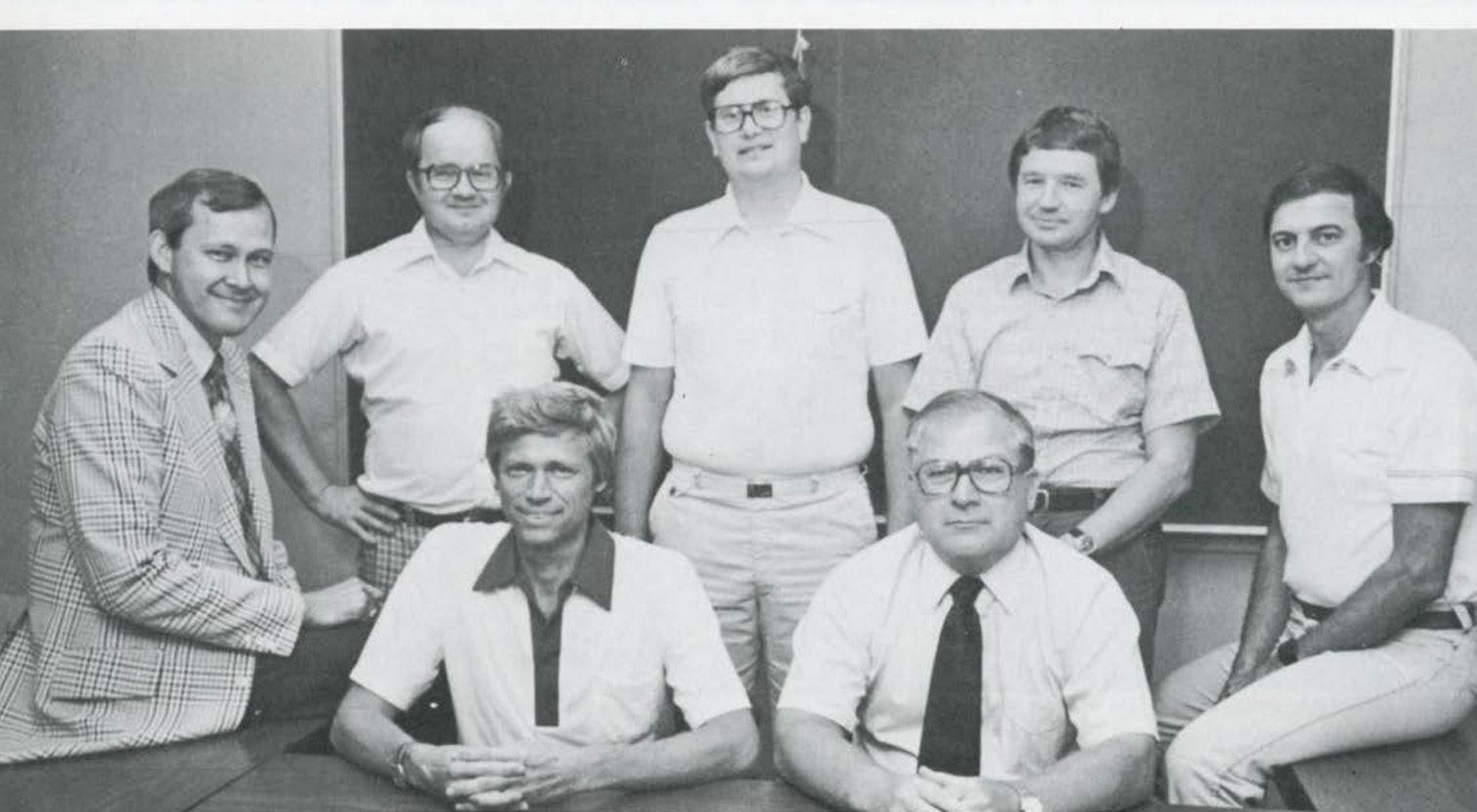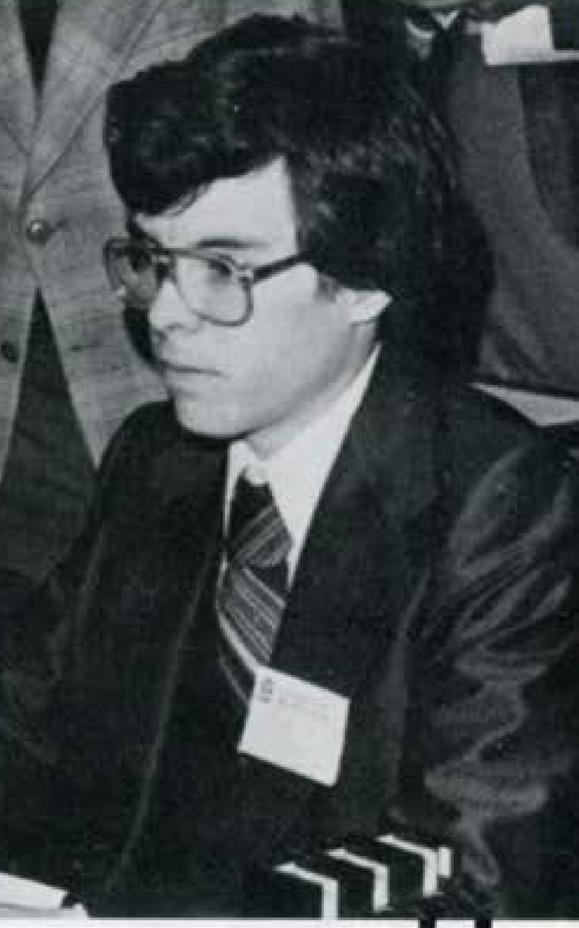
7 minute read
Disruption Junction; How will accountants function?
Artificial intelligence surrounds us, permeating every industry, from manufacturing to business and beyond. It impacts our daily lives, from social media algorithms to the way Netflix suggests shows to binge. Similar to the human mind in some ways, these systems are programmed to learn and Artificial intelligence surrounds us, permeating every industry, from manufacturing to business and beyond. It impacts our daily lives, from social media algorithms to the way Netflix suggests shows to binge. Similar to the human mind in some ways, these systems are programmed to learn and anticipate.
That pattern recognition has led to a multitude of uses in the accounting industry, from identifying potential fraud to reviewing contracts, and its uses are growing. That has changed the work accountants do, the skills they need and how the UNI business college is preparing students for the future.
Advertisement
Just ask Gabe Dickey (’98), That pattern recognition has led to a multitude of uses in the accounting industry, from identifying potential fraud to reviewing contracts, and its uses are growing. That has changed the work accountants do, the skills they need and how the business college is preparing students for the future. assistant professor of accounting, who has almost two decades experience in the public accounting profession.
“I think the fear that we’re going to be replaced by robots is overblown,” he said. “That said, I think our skill sets are going to change.”
Aaron Grundman (’92), tax partner in the Chicago office of Just ask Gabe Dickey (Accounting ’98), assistant professor of accounting, who has almost two decades of experience in the public accounting profession. “I think the fear that we’re going to be replaced by robots is overblown,” he said. “That said, I think our skill sets are going to change.” KPMG, one of the biggest accounting firms in the world, has seen this first hand. He said technology takes repetitive, lower-level tasks out of the hands of humans, which decreases costs while also increasing accuracy. This frees accountants to do deeper, more meaningful work, helping their Aaron Grundman (Accounting ’92), tax partner in the Chicago office of KPMG, one of the biggest accounting firms in the world, has seen this first hand. He said technology takes repetitive, lower-level tasks out of the hands of humans, which decreases costs while also increasing accuracy. This frees accountants to do deeper, more meaningful work, helping their companies and clients look to the future and plan.
There are essentially four types of artificial intelligence, explained Ilana Golbin, director in the Emerging Technologies group at PricewaterhouseCoopers (PwC). Type one is automation of rule, which can include simple automations like robotic process automation or Excel macros.
The second and third types, assisted and augmented, still have humans as ultimate decision makers. Assisted is mainly used to automate simple tasks and processes, like payroll, taxes and banking. In augmented, systems aid human intelligence, and the machine learns from each process and input, becoming smarter as a result. In accounting, augmented intelligence can be used to monitor financial activity and actively red flag suspicious transactions. Over time, the system can learn to be precise in the types of transactions it flags, and the user can make a decision from there. This can be useful in auditing situations.

Accounting faculty in 1982. Front row: Jon Norem, Gaylon Halverson. Back Row: Darrel Davis, LaVerne Andreessen, Michael Rod, Lee Nicholas, Ron Abraham

Accounting student, Scott Davis is interviewed at the Business Recruiters Fair in 1982.
In the fourth type, fully autonomous intelligence, the model is the overall decision maker in an adaptive system — like self-driving cars. “But there’s a huge trust gap and, I’d say, some liability depending on the application in making that jump to autonomy,” Golbin said. For now, at least, that means humans are still needed to complete the vast majority of applications.
The positive impact of these applications is huge. AI can eliminate human error, an almost inevitable outcome in the past, and provide data to help humans make informed and unbiased decisions. The accounting industry can take advantage of these AI attributes. After all, AI was created to supplement and improve the work of humans — not replace it.
AI can be used to speed through big data in milliseconds, sorting and sifting, identifying discrepancies, when it would normally take a human days or even weeks. Accountants can then spend more time creating financial outlooks and engaging in predictive analysis. For example, a manufacturer might see a rise in supplier costs. An AI-equipped accountant can predict the impact on the business and advise on the best action to address a potential shortfall.
Preparing the future accountant requires sharpening their critical thinking skills, engaging them to think digitally and analytically — and to be proactive instead of reactive. Chris Mueller (Accounting ’00), assurance partner with PwC in Minneapolis, said accounting companies want their employees to be strategic thinkers, using AI to inform
crucial financial decisions. The company is investing about $500 million every year in technology and employee training in the United States alone.
“We want our people doing meaningful things,” Mueller said. “We don’t want them doing menial tasks.”
There are challenges with the use of AI, though. “The issues around it are the (accounting) standards,” explained Brian Becker (Accounting ’89), national leader of technology consulting for RSM in Cedar Rapids, Iowa. “The technology is evolving faster than the standards are.”
Dickey added to the myriad implications of AI, including obstacles in obtaining meaningful and relevant information, human biases in coding and labeling information, and the ability of trained team members to properly decipher the AI-generated output. These issues will require a combination of ethical awareness and action, professional judgement and critical thinking.
“Accordingly, we need to work with our students to be mindful of both the power and limitations that these emerging tools have,” Dickey said.
Accounting faculty at UNI are making the necessary educational changes. Amy Igou, associate professor of accounting and a longtime professional in financial systems, said skills that were once sufficient for entry-level positions are changing. Instead of nailing down bank reconciliation, accounts payable or expense management, the next generation of accountants should be gaining those skills that computers cannot replicate, like critical thinking and decision making. This is especially important because clients generally trust people, not computers, to make choices.
Students also need to gain an understanding of AI and how to work within computer systems.
“What we need to do from an educational standpoint is make sure our students understand this tool (AI) as well as make sure our accountants have a good business acumen,” Igou said.
Just last year, UNI introduced a new partnership to help accounting students learn more about AI. Joe Ugrin, head of UNI’s accounting department, said he’s been interested in offering more learning opportunities around AI, so when UNI’s Study Abroad Center reached out in fall 2019 with an opportunity, the department jumped at the chance.
The program was based at the Rennes School of Business in Rennes, France. Students gained certification in AI along with some added features while gaining an important study abroad experience. The class started in May, which allowed students to still complete summer internships, and they could earn credits toward their degrees.
“It was the perfect storm of being able to offer the content we needed, being able to offer study abroad and offer the summer credits some of our students needed,” Ugrin said about the program. Ugrin credited UNI’s Study Abroad Center for finding the program and making it a possibility for students. “It was a lot of work by our Study Abroad office to bring this together.”
In the end, the program did not include the international experience because of COVID-19, but the program was offered virtually. “Even though it was online, I’d say it was still something of a cultural experience,” Ugrin said.
In addition to students, Ugrin, Dickey and Igou also participated in the online program and found it valuable. “It’s kind of exciting to see accounting in the game on this,” Dickey said. “We’re in the game and, in some ways, leading the business profession (with AI).”
Igou said even though students may not come out of the fourweek course as programmers, they do come out with a solid grounding in AI and the ability to bridge the technical and business sides of the technology.
Mueller, who sits on UNI’s accounting advisory board, said he’s been promoting digital upscaling as a way for UNI to benefit its students and he’s proud to see UNI offering this new certification. “I think it’s a great example of UNI opting in to digitally upskill students and prepare them for their future,” Mueller said.
Whatever happens with AI in the accounting profession, one thing is certain: It’s here to stay. The next generation of accountants will need to familiarize themselves with these systems and learn how to improve their work as a result.

Marcia Netz receives an Elijah Watt Sells award for being among the top 15 scorers in the nation on the CPA exam in 1982.









